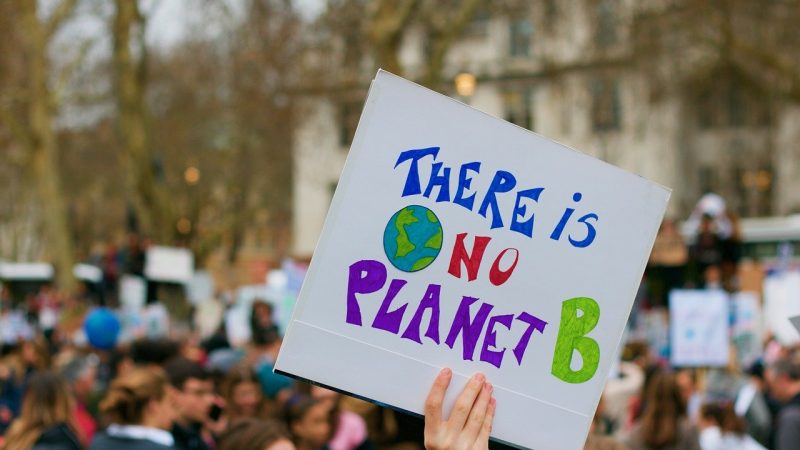'As the road to COP28 in the oil and petrol haven of the UAE begins, then more work will need to be done to curb the control of the fossil fuel industry and to ensure a pathway to 1.5 degrees of warming is secured.'

Amelia Womack is a freelance journalist and former deputy leader of the Green Party.
The COP27 negotiations have come to a close after negotiators worked 40 hours over the initial deadline. Although the final statement made a historic commitment to loss and damage payments, it failed to commit to emission reduction. This means the world is still on track to climate catastrophe.
COP27 has finally come to a close after a rollercoaster of two weeks of talks. After 30 years of climate negotiations, the final statement includes a historic win for loss and damage, a commitment from larger economies to cover the cost of climate destruction in developing nations.
Securing this fund was an early stumbling block for the agreement and wasn’t included in the first draft. Despite the commitment being in the final text, there is still no consensus on the fundamentals of how this fund would work and operate. That means that there is no agreement on how much money should be paid in, by whom and what is defined as “loss and damage”.
Despite this win for new funding, the agreement fails to limit the root causes of loss and damage- the extraction of oil, gas and coal. With no commitment to decarbonisation in the final text, there has been little progress on reducing carbon emissions from last year’s summit in Glasgow. There was also a failure to recognise calls from India and other nations to change the text to phase down “all fossil fuels” and instead kept to the phase down of coal as agreed at COP26
Caroline Lucas, Green Party MP for Brighton Pavillion said “Securing a new loss and damage fund is a major win for climate justice – and the reaction from climate vulnerable countries to the news shows just how significant an achievement this is. But let’s be clear: COP27’s progress on keeping fossil fuels in the ground was pitiful. The world’s biggest polluting countries, and the climate-wrecking fossil fuel companies that sit alongside them – ubiquitous at this year’s summit – have held a foot on the accelerator on our road to climate hell.”
COP27 also reaffirmed the goal of Glasgow to keep warming to 1.5 degrees Celsius above pre-industrial levels. The planet needs to stay below this temperature to avoid major climate disaster. However, there is no commitment on how we will reach this goal. Since COP began in Berlin in 1995, we have seen an annual rise in carbon emissions (except for a small drop during the pandemic), as well as a rise in climate related disasters.
Mary Robinson, chair of the Elders Group of former world leaders, ex-president of Ireland and twice a UN climate envoy, said: “The world remains on the brink of climate catastrophe. Progress made on [cutting emissions] has been too slow. We are on the cusp of a clean energy world, but only if G20 leaders live up to their responsibilities, keep their word and strengthen their will. The onus is on them.”
This was echoed by António Guterres, secretary general of the UN, who warned: “Our planet is still in the emergency room. We need to drastically reduce emissions now – and this is an issue this Cop did not address. The world still needs a giant leap on climate ambition.”
There was overwhelming criticism of COP27 allowing 600 fossil fuel delegates to attend and liaise with world leaders. Civil society groups have long been calling for a ban of attendees with vested interests, yet those who are accelerating the climate crisis still continue to rub shoulders with decision makers at COP negotiations.
Alex Rafalowicz, Executive Director, Fossil Fuel Non-Proliferation Treaty stated: “This COP has been stuck in slow motion on addressing fossil fuels when in the real world the climate crisis has shifted to hyperspeed. There were more lobbyists from coal, oil, and gas companies than there were delegates from Pacific Islands, which explains why the urgent call from Tuvalu and Vanuatu for a phase out of all fossil fuels was ignored and loopholes in the favour of industry were adopted. These UN conferences can only ignore the reality for so long. Already Indigenous nations, countries like Colombia, cities, the private sector and millions of people are planning for the shift off coal, oil, and gas to a clean energy future. In the coming year the call for a new international treaty focussed on the fast and fair shift off fossil fuels will only intensify.”
As the road to COP28 in the oil and petrol haven of the UAE begins, then more work will need to be done to curb the control of the fossil fuel industry and to ensure a pathway to 1.5 degrees of warming is secured.
Left Foot Forward doesn't have the backing of big business or billionaires. We rely on the kind and generous support of ordinary people like you.
You can support hard-hitting journalism that holds the right to account, provides a forum for debate among progressives, and covers the stories the rest of the media ignore. Donate today.



